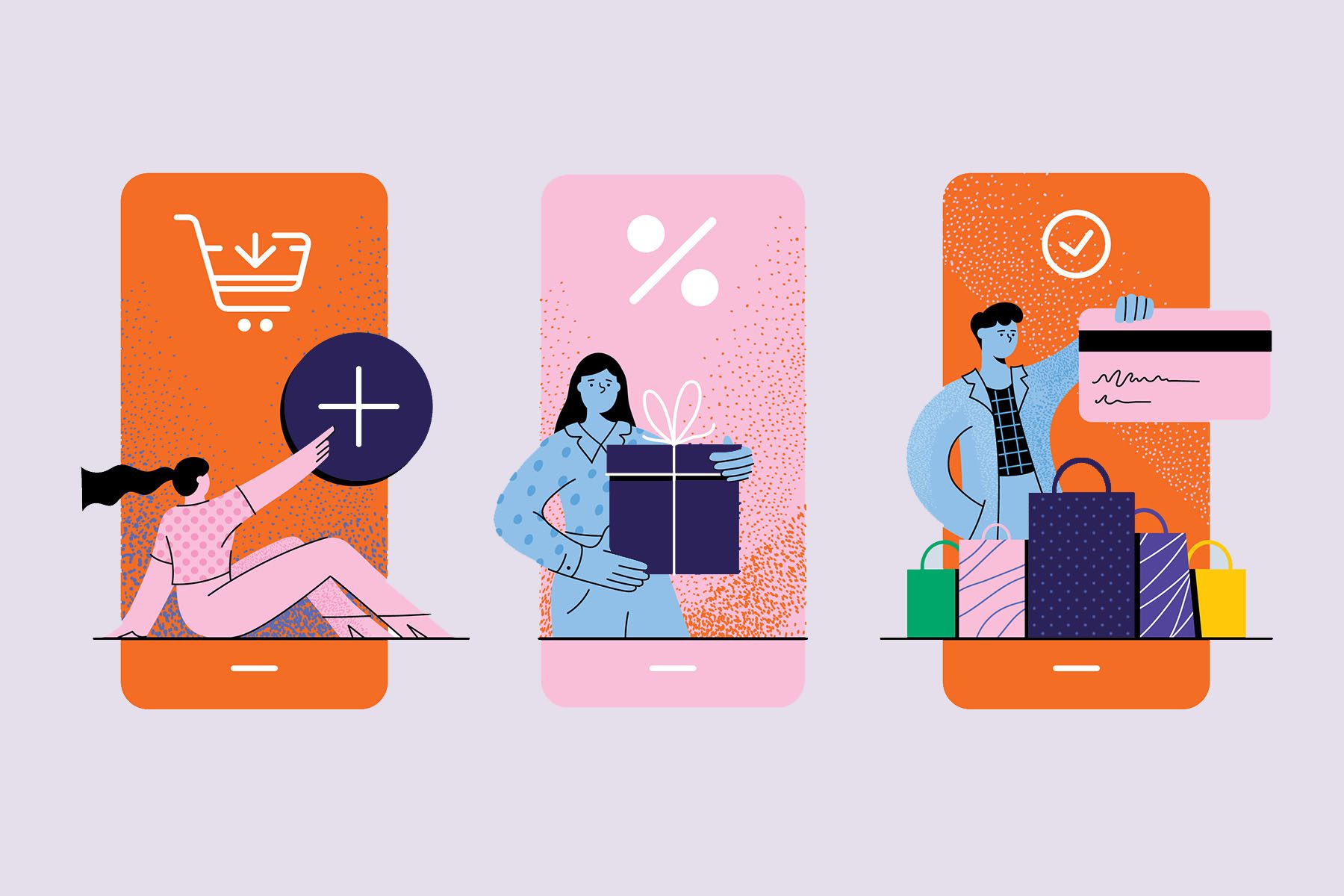For Brontë Grimm, Etsy was supposed to be a reprieve from the pandemic’s economic toll. Like so many others, Grimm, an artist based in Portland, Oregon, hit a financial low point in 2020. Being immunocompromised and a person with disabilities, they could no longer do photography or create paintings that involved working with models in person. Their girlfriend could not find a job either, and the couple found themselves on the brink of eviction.
Grimm turned to Etsy. They had used the creator-focused e-commerce site to sell jewelry in 2010 and decided to set up a new shop selling their Victorian-style jewelry designs in January 2021. This time around, however, Grimm noticed Etsy charged creators more in fees for each item they listed and sold.
When Etsy set another fee increase for this month, it became too much for Grimm.
“They want us to act like a warehouse, because they make money that way,” Grimm, 35, told The 19th. “They are basically expecting marginalized people and expecting small creators to behave like corporations.”
This week Grimm joined more than 17,000 frustrated Etsy sellers to strike in protest of policies they argue have strayed from the company’s mission to make entrepreneurship more accessible. The company’s incentives for fast shipping and customer response rates also lead to less promotion for the platform’s smaller shops, the sellers said. The protesting sellers put their shops in “vacation mode” beginning on Monday through April 18.
Seven LGBTQ+ Etsy sellers, three of whom are people with disabilities, told The 19th that increasing fees and pressure from the company leave them questioning whether they can continue to maintain their shops. Women make up 79 percent of the site’s U.S. sellers, according to a company report, and LGBTQ+ people make up 14 percent, which is about double the national population estimates. The report does not list information for people with disabilities.
Many of Etsy’s sellers live at the intersection of multiple marginalized identities. For queer and disabled people like Grimm, who face disproportionate financial hardship and discrimination in formal work settings, Etsy’s mission of lowering barriers to start a business was especially appealing. The site has built-in name recognition and trust among customers that sellers saw as a benefit to joining the platform. Economic data is limited, but queer people, particularly those of color, report higher levels of unemployment, working multiple jobs and self employment compared to non-LGBTQ+ people. Adults with disabilities experience poverty at more than twice the rate as those without, according to the National Disability Institute.
Etsy’s latest fee increase was announced in February, raising the amount sellers pay for each transaction from 5 percent of their sales to 6.5 percent, effective Monday. In addition to transaction fees, sellers could be responsible for a host of other charges, such as listing fees, processing fees and advertising fees, which can all add up to as much as 20 percent of their revenue, sellers said. Etsy’s off-site advertising fees are dependent on a particular shop’s total sales over the past year. Such fees do not factor in additional costs of materials and labor. A petition that has received more than 51,000 signatures outlines five demands, one of which takes aim at the fees.
“It’s very confusing, because there’s so many fees,” said Sydney Sky Griffin, 25, a strike participant who has run an Etsy shop selling skincare products for the past year. “It would take me so long to try to understand and untangle where the money was going and how much they were charging and why they were charging it.”
Those small individual charges on Etsy sales can add up quickly. This month, Grimm sold a necklace for $50 just as the new transaction fee was being implemented. After taking out fees plus the cost of materials and production, they made $15.45 in profits, working out to an hourly pay of $3.86 for their labor. Many Etsy sellers live paycheck to paycheck, and every dollar matters for meeting their basic needs. Grimm’s girlfriend ultimately found a full-time job during the pandemic, but it does not pay a livable wage, they said. The Etsy money helps with buying groceries and toiletries.
Five of the seven LGBTQ+ Etsy sellers The 19th interviewed said they count on profits from Etsy as either all or most of their income. A majority of those who said they rely on Etsy income full time make less than $10,000 from the sales. Three of the five have disabilities and noted having limited options for steady income outside of their Etsy shops, particularly during the pandemic, which has been harder for immunocompromised people who face a higher threat from the coronavirus.
“Being disabled, our Etsy shop is our entire source of income,” said Amy Williams, 22, who created a shop on Etsy with their partner in March 2021. “We are lucky to have some help from our parents in regards to basic necessities, but it's near impossible to save up money that we will need to survive in the future because of all of Etsy's fees.”
Profits for sellers can be reduced in other ways. In 2019, Etsy CEO Josh Silverman sent a memo to sellers announcing the company would prioritize items and shops that offer free shipping. Silverman encouraged the sellers to adjust their prices to account for shipping.
But for many sellers, raising their prices is not feasible. There is only so much buyers are willing to pay, particularly in an e-commerce market dominated by Amazon. And many Etsy sellers “see themselves as serving their community, or as being different than a big business,” said Samantha Close, an assistant professor of communications with DePaul University who researches digital creative platforms like Etsy. Therefore, they find it unethical to elevate prices to cover shipping, Close added.
“I don't want to just charge hefty prices for things to the point that people can’t have them,” Griffin said. “The community I’m in, most of the people are usually poor and don’t have a lot of work. It starts to get frustrating when it feels like I’m cheating my customers.”
-
More from The 19th
- Inflation is hurting women at the grocery store. Some are eating less in order to feed their families.
- As the urgency of climate solutions grows, gender inclusion lags, report finds
- ‘Leaving victims with the bill’: Sexual assault survivors are often charged hundreds of dollars for rape kits
Another point of contention is Etsy’s “Star Seller” program, meant to “reward Etsy sellers who consistently provide an excellent customer experience,” according to the company website. The Star Seller badge signals to customers that a particular seller is reliable. That means sellers must have a 95 percent response rate to messages within 24 hours, have 95 percent of their orders shipped “on time,” have 95 percent of their sales receive 5-star reviews and meet a minimum of 10 orders and $300 in sales within a three month review period.
But sellers said the program deprioritizes small creators who often produce items alone or with a small group. It is also not sustainable for many disabled or neurodivergent sellers either, said Juniper Harwood, 26, who has been operating a shop since October 2020.
Harwood and other sellers said they receive minimal response from the company when they face challenges. In October 2021, Etsy sent an email saying that 75 percent of Harwood’s earnings would be put on hold. Harwood tried unsuccessfully to get a response from the company to learn more about the reasoning behind the hold and how long it would last.
Months later, when Etsy sent another email that the earnings hold would be lifted, “I sunk to my kitchen floor and sobbed,” Harwood said. “It was scary and humiliating to have Etsy control my entire livelihood, for months, and throughout the entire holiday season no less.”
In response to the strike, Etsy said in an emailed statement that the fee increase would help the company “increase our investments in areas outlined in the petition, including marketing, customer support, and removing listings that don't meet our policies.”
The Etsy strike raises questions about the business model for e-commerce industries more broadly, particularly those that rely on labor from women and queer people, Close said.
LGBTQ+ people “can't take their shops elsewhere as easily,” Close said, and they may have fewer financial alternatives to seek out for support.
The LBGTQ+ sellers who spoke with The 19th said they want the company to recognize all of these factors that affect them, and to implement practices that support the communities company leaders say they want to uplift. Participating in the strike this week came with sacrifices: missed grocery money, or, in Grimm’s case, missed money to buy their medications. But sellers said they recognize the potential in Etsy to serve underrepresented groups in business, and they see the strike as an opportunity to raise awareness about an important issue.
“I think Etsy is in a really unique position, and they have a fantastic opportunity here to set themselves aside from giants like Amazon,” Harwood said. “I think this is a make-or-break moment for Etsy, and I hope they listen to the people who have made their platform what it is today: their sellers. Us.”







